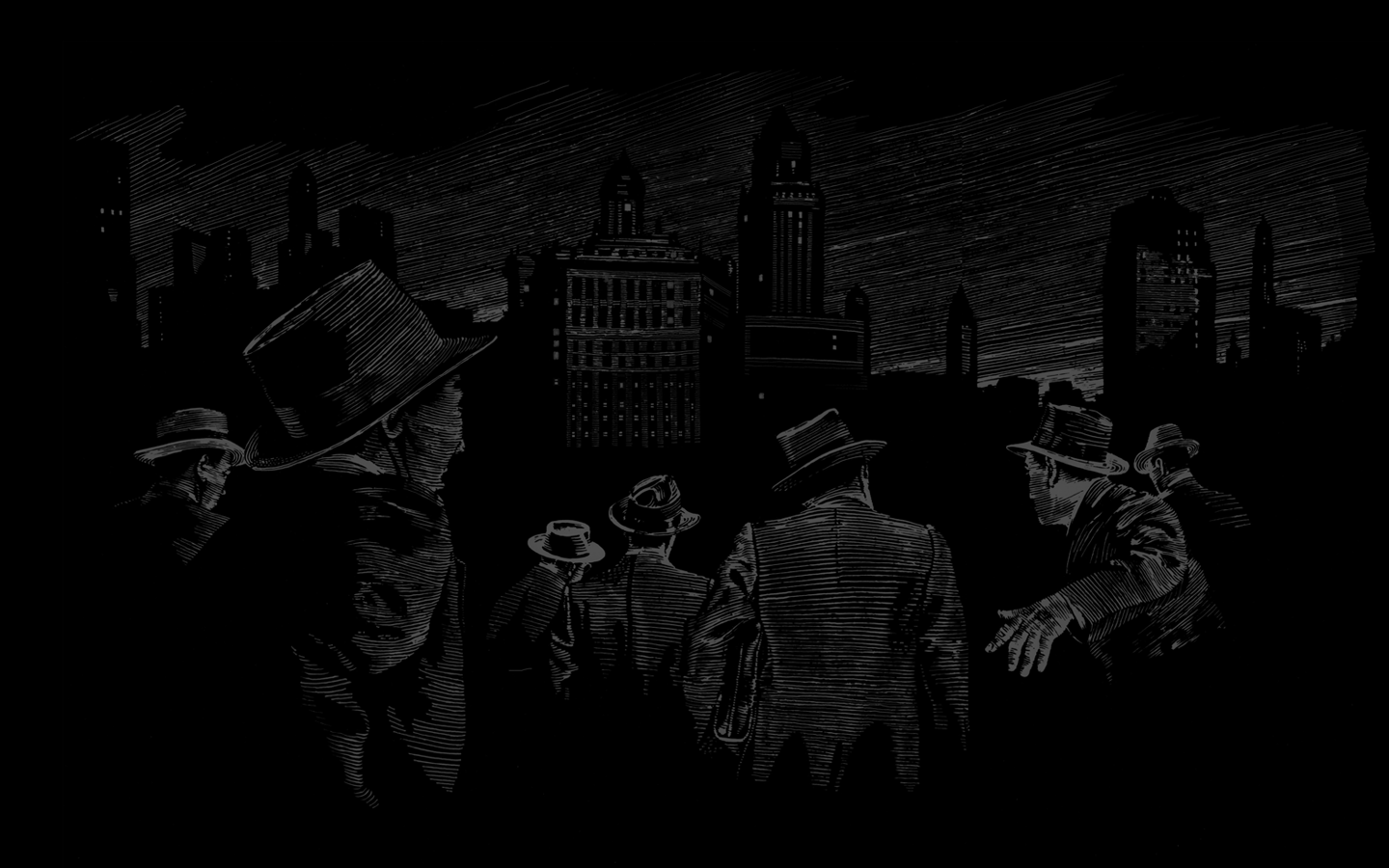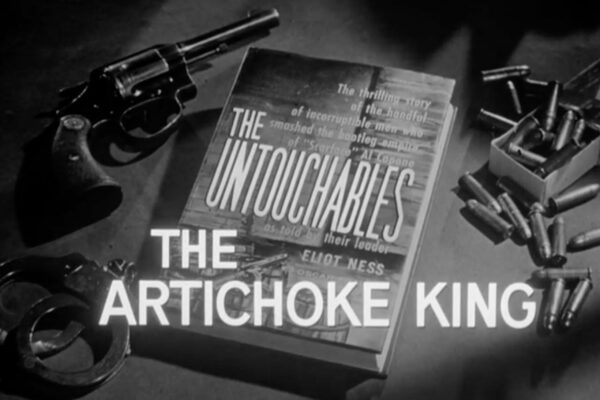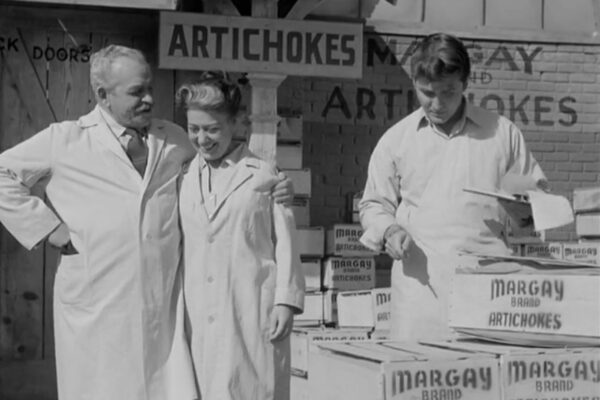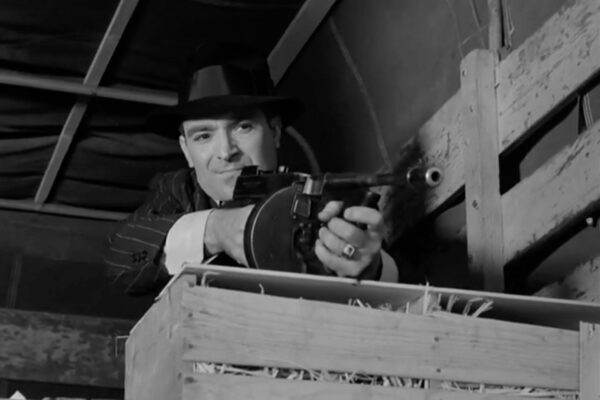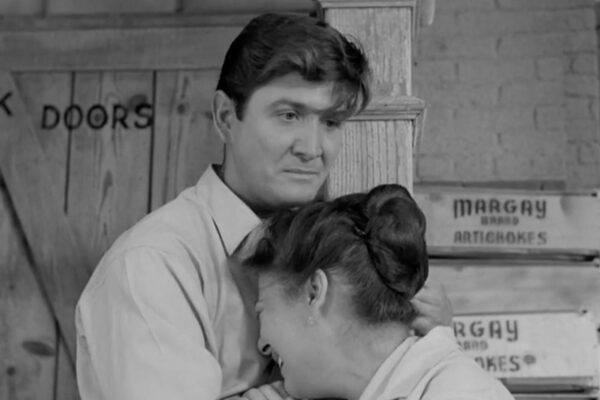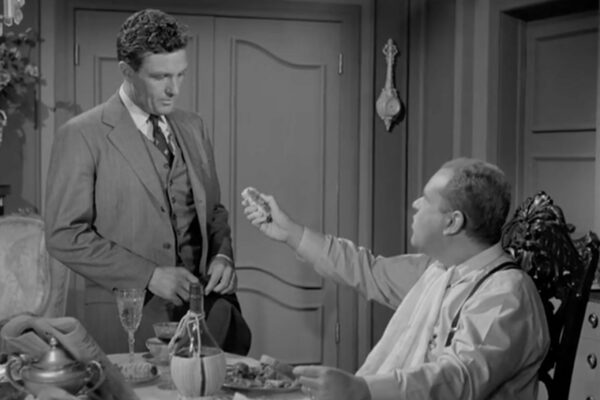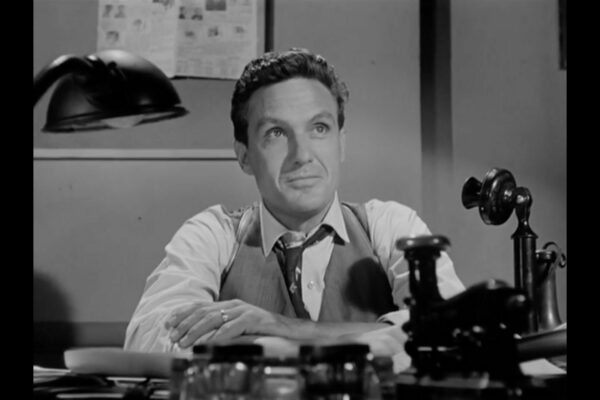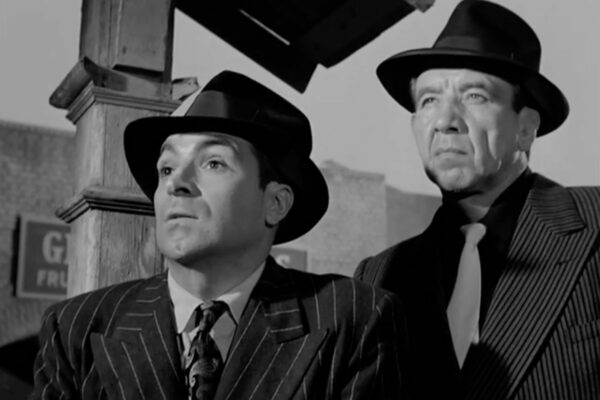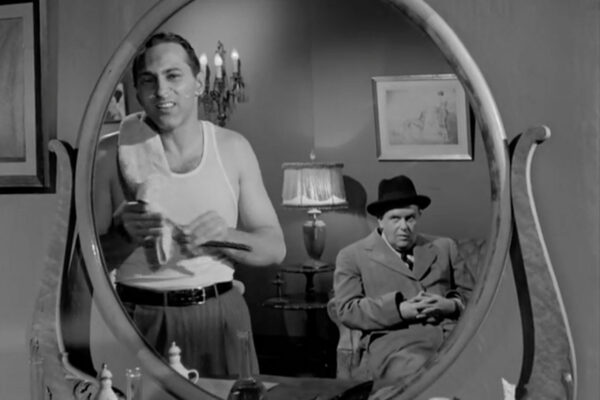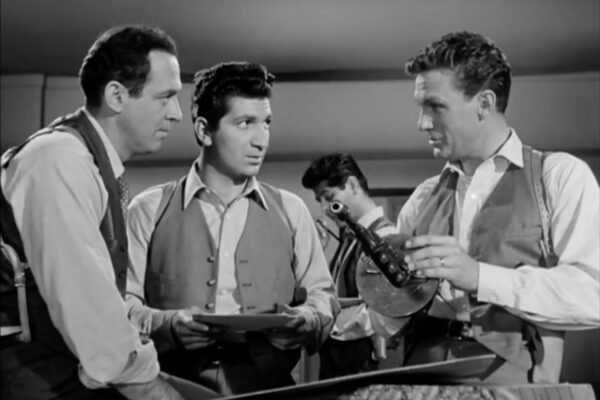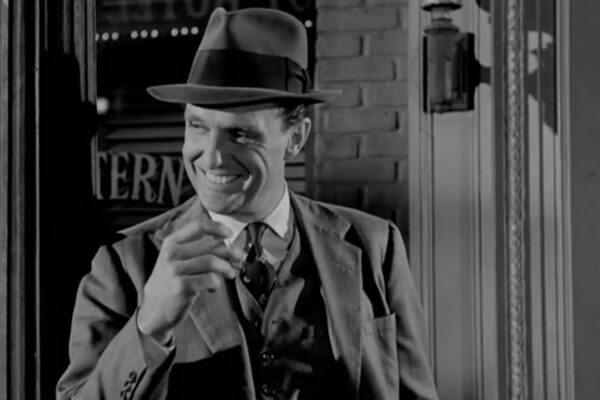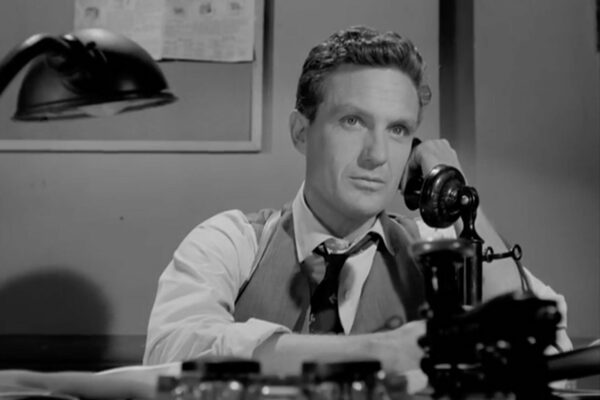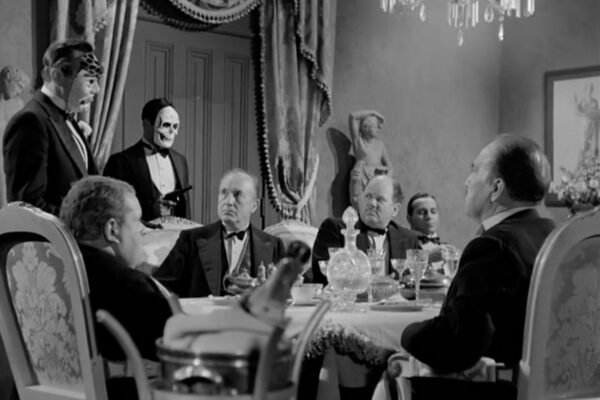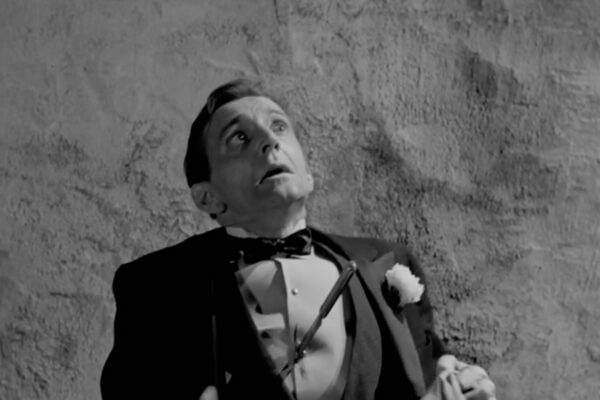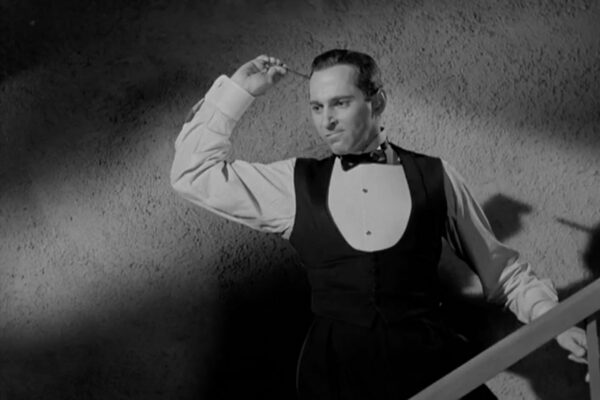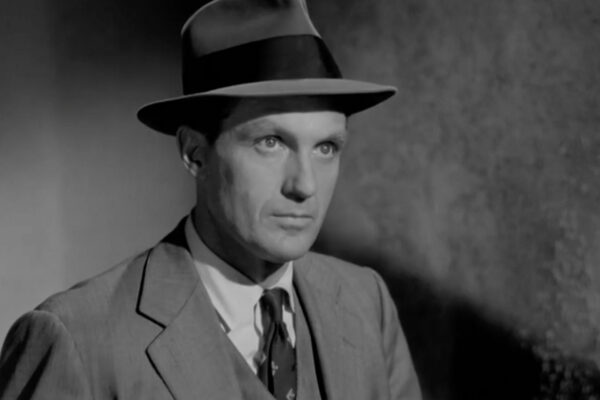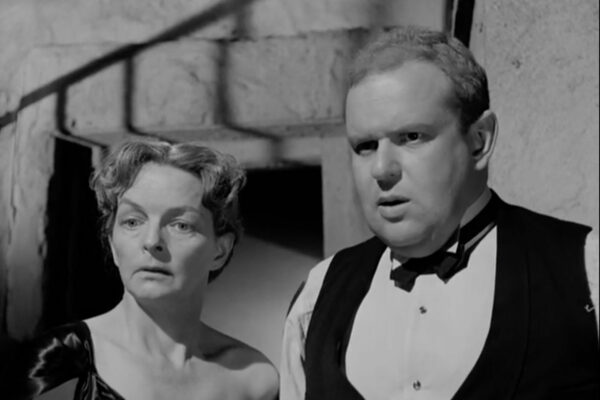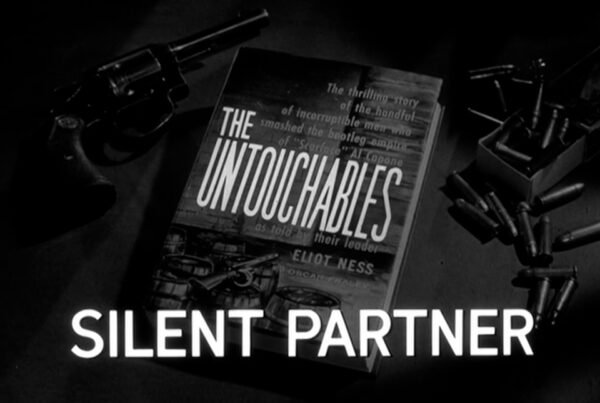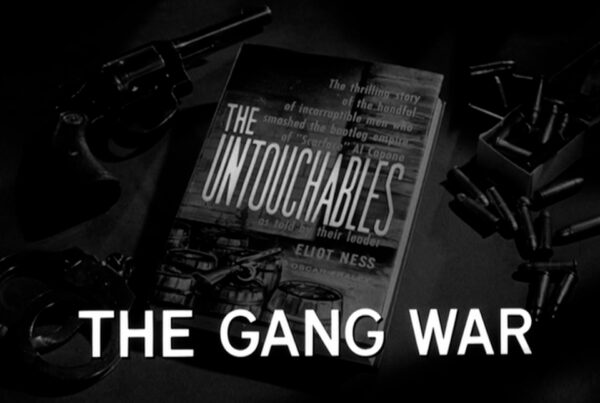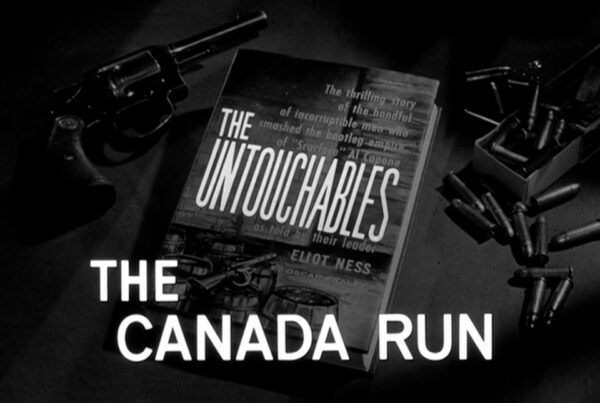THE ARTICHOKE KING
Airdate: December 3, 1959, June 2nd 1960
Teleplay by Harry Essex
Directed by Roger Kay
Produced by Sidney Marshall
Director of Photography Charles Straumer
Featuring Jack Weston, Al Ruscio and Robert Elingston
“6AM Tuesday, April 19th, 1931. The place, the Washington Produce Market in New York City. You’re asleep most likely, grabbing that extra 40 winks before the alarm gets you up, but things have been moving along here in the market set up to feed the city with the largest appetite in the world. Every 48-hours, more than 25 million pounds of fruit and vegetables stream into the city during the night. A multi-million dollar business, a prime target, for the viscous racketters of the era. There were also decent citizens like the Cestaris: Angelo, his wife Sophia, and his son Atony. They worked hard, enjoyed the fruits of their labors, tried to be good citizens.”
An artichoke dealer in the wholesale produce market is murdered and Ness moves in to break the organization attempting to take over legitimate businesses.
While Ness hopes the Cestari family, mourning the murder of their father, can help him take down Ciro Terranova’s empire, their involvement in the plot ends when Yale (and his extortion attempt on Terranova) is gunned down, and another gangster steps in to take Yale’s place.
“With the arrest of Ciro Terranova, his control of the produce market ended. He took his own life on February 21st, 1938.”
REVIEW
Jack Weston is badly miscast in this meandering, unconvincing episode. There is little to redeem the story, fabricated almost nearly out of thin air, but based upon the historic gangland hit on mobster Frankie Yale, who, it is said, had more flowers at his funeral than any other mobster gunned in the line of duty.
Despite Yale’s connection to Capone and his mentor Johnny Torrio, none of this merits mention in the episode and Yale is quickly dispatched by a rival gangster in the first 20 minutes, squandering the name recognition. In fact, both Yale and Terranova are shown to be pretty inept targets for Ness, who is in New York on “special assignment.”
Felix Burke, the gangster who moves in on Yale and Terranova, is made out to be a big shot with connections to the Saint Valentines Day Massacre (making him a Capone acolyte), but he’s easily unnerved by Ness and his men as they tail him, making for an amusing moment where Ness delights in pretending not to know him (and actually smiles in the process.) This is the only time Ness encounters him until he’s gunned down in the finale.
While the hour lacks gravitas, both Stack and cinematographer Charles Straumer use the absence of drama to hone their craft and this episode is a dress rehearsal for far more engaging hours to come.
The cinematography of the show only gets more staccato and finely composed as the series moves forward and in this hour, Straumer covers several scenes almost entirely from a master shot where the camera recomposes shots in-scene, which reduces the need for cuts and coverage and makes for a far more economical way to shoot a television show. One lengthy dialogue scene in particular takes place almost entirely in the reflection of a bedroom mirror, and the camera tracks with the actors as they entire the mirror and leave it.
While Straumer rarely, if ever, uses his camera to convey subtext or relies on compositional shorthand, he frames Yale seated with the antlers of a mounted animal behind him in an early scene.
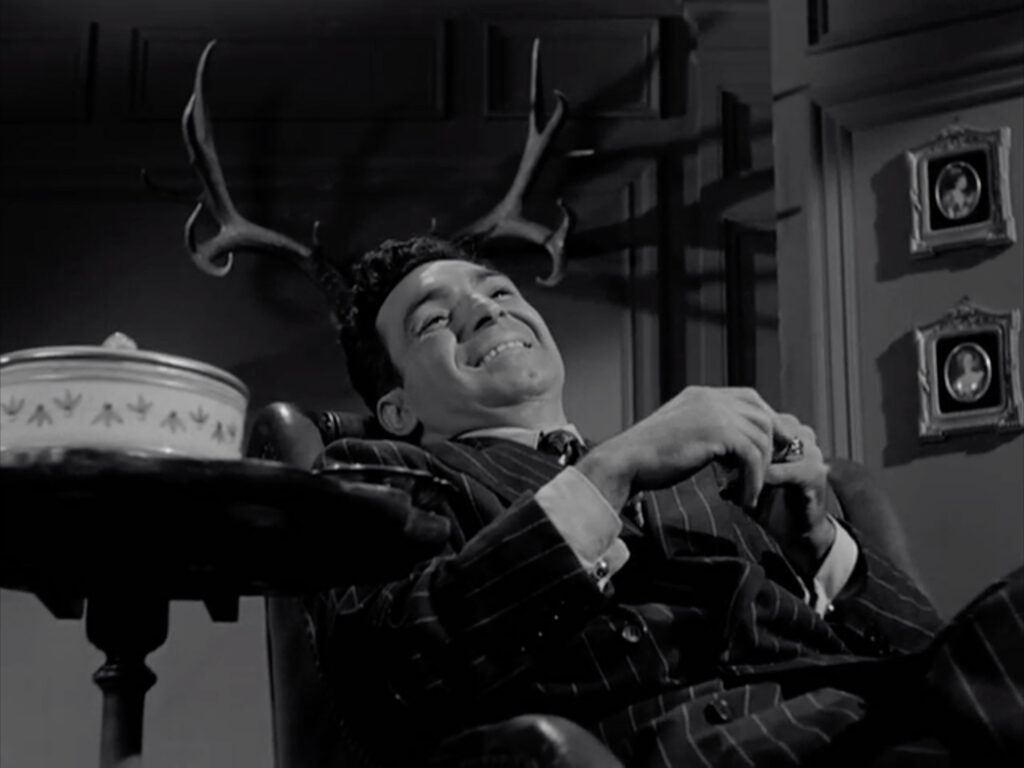
Franke Yale doesn’t know that it’s about to be open season on him, but the cinematographer does.
In the Untouchables’ drab New York office, Straumer composes Ness amid the clutter of his desk.
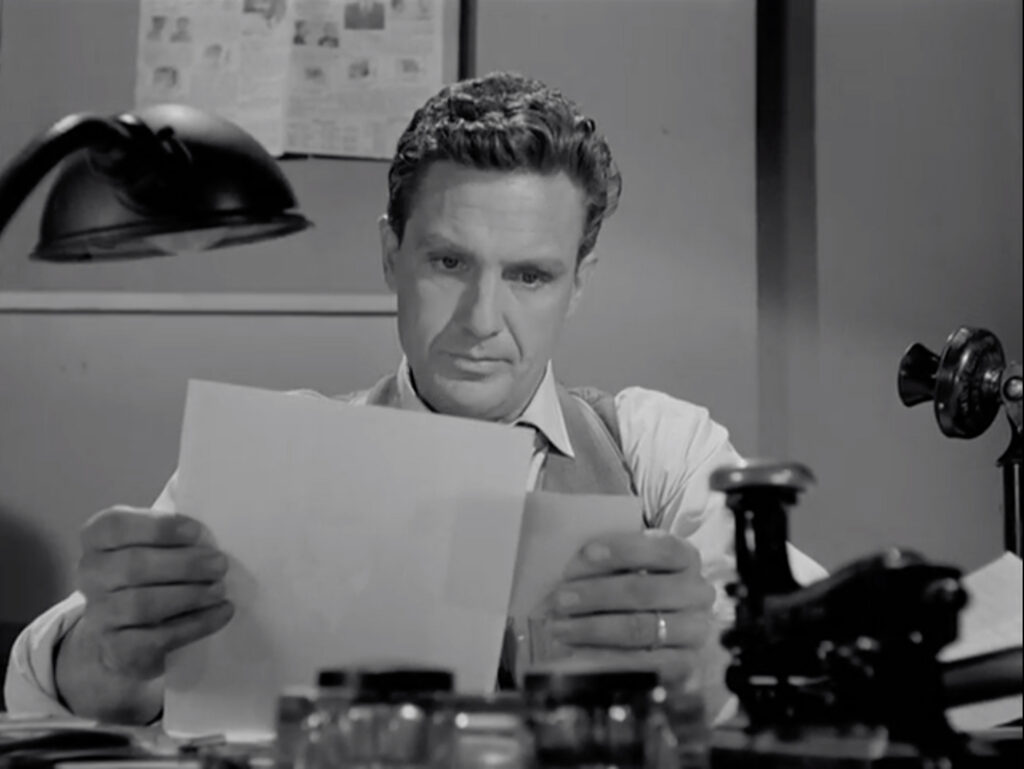
An unusually populated frame adds visual interest to the traditional office scene.
After Rico is knocked out outside the Roman Gardens, the camera dollies left with Ness to frame each Untouchable through the window of their car as they look on.
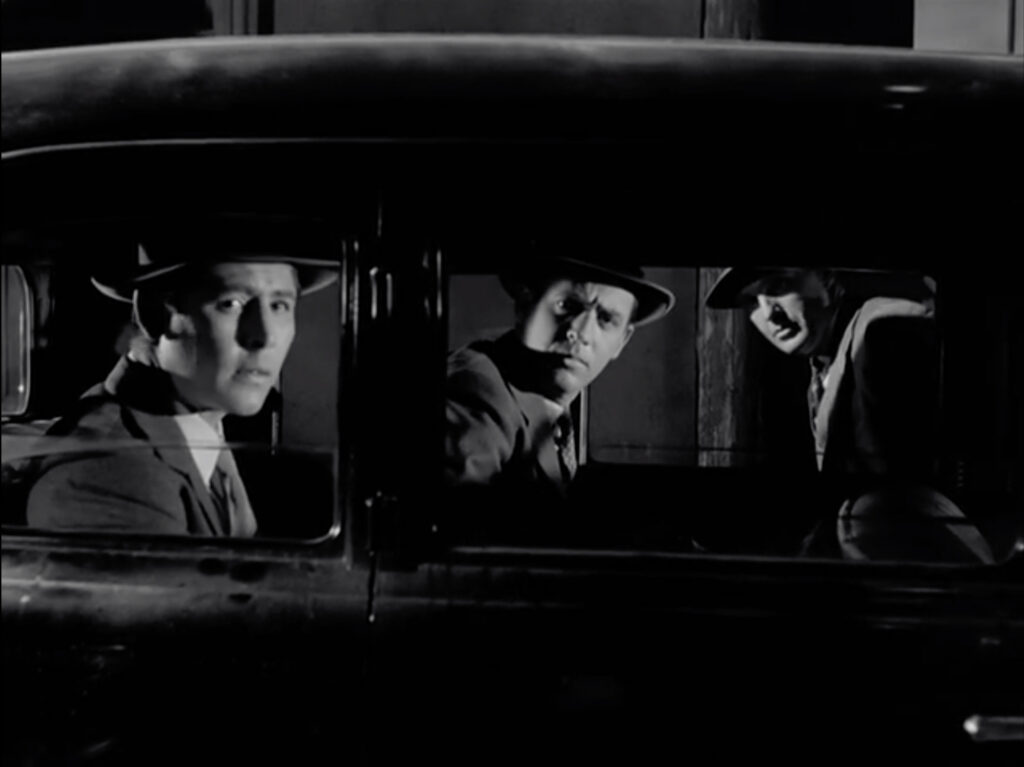
Straumer used every inch of the 1959 television screen, composing Youngfellow, Flaherty and Ness in this dolly shot.
In an anthology series with few connecting yarns, one must take a broad look at the evolution of creative choices made along the way. Here we see several new shades of grey in Stack’s portrayl of Ness, who seems more bothered than usual. His umbrage at gangsterdom and its effects on the innocent become a common theme in later seasons and this episode would be all the more effective if it had a compelling antagonist for Ness to square off with.
In later episodes, this dynamic would be better realized between Ness and Bruce Gordon’s Frank Nitti, Nehemiah Persoff’s Waxey Gordon and Johnny Fortunato, and Oscar Beregi’s Joe Kulack, among others. With such a restrained characterization, Stack’s Ness thrives best when the villainy is at his (or her) most colorful.
Ness’ ethos is also rarely explored, which makes this exchange with the slain grocer’s son noteable.
ANTONY: “This is my country, Mr. Ness. What happens when people get away with things like that?”
NESS: “I don’t know all the answers, Tony. Just enough to keep me on the job. Cops on the take, crooked politicians, even as high up as a judge with his finger in the pie. Maybe it’s the times that breed it. I don’t know. I just know that not near enough people are interested.”
ANTONY: “Why bother then?”
NESS: “Because you care, Tony. Because I care.”
These types of small flourishes, almost unnoticeable episode-by-episode where the plots rarely intertwine and storylines reboot every hour, show the burgeoning craftsmanship that would eventually make the show iconic.
QUOTES
FRANKIE YALE: “You are the stingiest man in all New York. You could squeeze the buffalo off a nickel. You got a candy jar with no candy. Carry a pocket book but it’s always empty. You got a big belly, but you got no guts.”
OBSERVATIONS
• The Untouchables comment that Yale was killed by a Thompson once owned by Al Capone, but the real-life Capone at one point actually worked for the real-life Yale.
• Stack makes interesting choices in The Artichoke King, but early on vents his frustration by throwing one of the Cestari’s artichokes against a wall. Weird.
• Ness, after comparing Rossi’s profile to Rudolph Valentino, displays a charming knowledge of Italy when he and Rico arrive outside the Roman Gardens Restaurant.
• While Rico is dressed up to infiltrate the ceremony happening inside, he’s immediately knocked unconscious…and then the episode is over. Why bother?
• While one of the Roman Garden robbers first fires on Ness and his men, the bullet strike is scene hitting the hood of a car, but there’s already one in the windshield.
HISTORICAL NOTES
• The Artichoke King was indeed a real person named Ciro Terranova, aided by his brothers Vincent and Nick in their criminal empire. Despite Winchell’s claim, he died in 1938 of a heart failure after suffering complications from two strokes.
• The Roman Gardens restaurant in the Brox was actually robbed in 1929 and Terranova was present.


